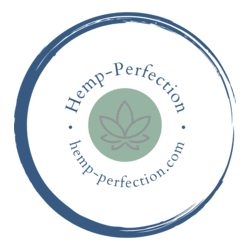Eye strain is a common issue in today’s digital age, where prolonged screen time and intense visual tasks can take a toll on our eyes. Fortunately, certain vitamins and nutrients can help alleviate eye strain and support overall eye health. In this comprehensive guide, we’ll explore the best vitamins for eye strain relief, their benefits, and how to incorporate them into your daily routine.
Understanding Eye Strain
What is Eye Strain?
Eye strain, also known as asthenopia, is a condition characterized by discomfort and fatigue in the eyes, often accompanied by headaches, blurred vision, and dryness. It occurs when the eyes are overworked due to prolonged activities such as reading, driving, or staring at digital screens.
Causes of Eye Strain
Several factors can contribute to eye strain, including:
- Prolonged Screen Time: Staring at computers, smartphones, and other digital devices for extended periods.
- Poor Lighting: Insufficient or harsh lighting while reading or working.
- Incorrect Prescription: Wearing outdated or incorrect prescription glasses or contact lenses.
- Uncorrected Vision Problems: Conditions like astigmatism or hyperopia.
- Stress and Fatigue: Mental and physical exhaustion can exacerbate eye strain.
Essential Vitamins for Eye Strain Relief
Vitamin A
Benefits of Vitamin A
Vitamin A plays a crucial role in maintaining healthy vision. It is a key component of rhodopsin, a protein in the eyes that helps you see in low-light conditions. Adequate vitamin A intake can prevent dry eyes, night blindness, and reduce the risk of age-related macular degeneration (AMD).
Sources of Vitamin A
- Animal Sources: Liver, fish oil, dairy products, and eggs.
- Plant Sources: Carrots, sweet potatoes, spinach, and kale (as beta-carotene).
Vitamin C
Benefits of Vitamin C
Vitamin C is a powerful antioxidant that protects the eyes from oxidative stress caused by free radicals. It supports the health of blood vessels in the eyes and may lower the risk of cataracts and AMD.
Sources of Vitamin C
- Citrus Fruits: Oranges, lemons, grapefruits.
- Other Fruits and Vegetables: Strawberries, bell peppers, broccoli, and Brussels sprouts.
Vitamin E
Benefits of Vitamin E
Vitamin E is another antioxidant that helps protect the eyes from damage caused by free radicals. It supports the health of cell membranes in the eyes and may reduce the risk of cataracts and AMD.
Sources of Vitamin E
- Nuts and Seeds: Almonds, sunflower seeds, and hazelnuts.
- Vegetable Oils: Sunflower oil, safflower oil, and wheat germ oil.
- Leafy Greens: Spinach and Swiss chard.
Vitamin B Complex
Benefits of Vitamin B Complex
The B vitamins, including B1 (thiamine), B2 (riboflavin), B3 (niacin), B6 (pyridoxine), B9 (folate), and B12 (cobalamin), play a vital role in maintaining overall eye health. They help reduce inflammation, support proper nerve function, and improve blood circulation to the eyes.
Sources of Vitamin B Complex
- Animal Products: Meat, poultry, fish, eggs, and dairy.
- Plant Sources: Legumes, leafy greens, seeds, and fortified cereals.
Lutein and Zeaxanthin
Benefits of Lutein and Zeaxanthin
Lutein and zeaxanthin are carotenoids that accumulate in the retina and protect the eyes from harmful blue light and oxidative stress. They help improve visual performance and reduce the risk of chronic eye diseases like AMD and cataracts.
Sources of Lutein and Zeaxanthin
- Leafy Greens: Kale, spinach, and collard greens.
- Other Vegetables: Corn, peas, and broccoli.
- Eggs: Particularly the yolk.
Omega-3 Fatty Acids
Benefits of Omega-3 Fatty Acids
Omega-3 fatty acids, particularly DHA (docosahexaenoic acid), are essential for maintaining the health of the retina. They help reduce dry eye symptoms, lower the risk of AMD, and support overall eye health.
Sources of Omega-3 Fatty Acids
- Fatty Fish: Salmon, mackerel, sardines, and herring.
- Plant Sources: Flaxseeds, chia seeds, and walnuts.
- Supplements: Fish oil and algae-based supplements.
Zinc
Benefits of Zinc
Zinc is a vital mineral that helps transport vitamin A from the liver to the retina to produce melanin, a protective pigment in the eyes. It supports the health of the retina and may lower the risk of night blindness and AMD.
Sources of Zinc
- Animal Sources: Oysters, beef, pork, and chicken.
- Plant Sources: Legumes, nuts, seeds, and whole grains.
How to Incorporate These Vitamins into Your Diet
Balanced Diet
A well-rounded diet that includes a variety of fruits, vegetables, whole grains, lean proteins, and healthy fats can help ensure you get the essential vitamins and nutrients needed for eye health.
Supplements
If you find it challenging to meet your nutritional needs through diet alone, consider taking supplements. Consult with a healthcare professional before starting any new supplement regimen to ensure it is appropriate for your individual needs.
Lifestyle Changes
In addition to a healthy diet, making lifestyle changes can help alleviate eye strain:
- Follow the 20-20-20 Rule: Every 20 minutes, take a 20-second break and look at something 20 feet away.
- Adjust Screen Settings: Increase font size, adjust brightness and contrast, and reduce glare.
- Maintain Proper Lighting: Ensure your workspace is well-lit to reduce eye strain.
- Stay Hydrated: Drink plenty of water to keep your eyes hydrated and reduce dryness.
- Regular Eye Check-Ups: Visit an eye care professional regularly to monitor your eye health and update your prescription if needed.
Frequently Asked Questions (FAQs)
What is the best vitamin for eye strain relief?
Vitamin A is one of the best vitamins for eye strain relief, as it supports night vision and prevents dryness. However, a combination of vitamins, including C, E, B complex, and nutrients like lutein, zeaxanthin, and omega-3 fatty acids, is ideal for comprehensive eye health.
How can I reduce eye strain from screen time?
To reduce eye strain from screen time, follow the 20-20-20 rule, adjust screen settings, maintain proper lighting, and take regular breaks. Incorporating vitamins and nutrients that support eye health can also help alleviate symptoms.
Can supplements help with eye strain?
Yes, supplements can help with eye strain, especially if you have difficulty meeting your nutritional needs through diet alone. Vitamins A, C, E, B complex, lutein, zeaxanthin, omega-3 fatty acids, and zinc are beneficial for eye health.
Are there any side effects of taking eye health supplements?
Most eye health supplements are safe when taken as directed. However, excessive intake of certain vitamins and minerals can cause side effects. Consult with a healthcare professional before starting any new supplement regimen.
How long does it take for vitamins to improve eye strain?
The time it takes for vitamins to improve eye strain can vary depending on the individual and their overall diet and lifestyle. Generally, it may take several weeks to notice significant improvements in eye health.
Can a poor diet cause eye strain?
A poor diet lacking essential vitamins and nutrients can contribute to eye strain and other eye health issues. A balanced diet rich in vitamins A, C, E, B complex, lutein, zeaxanthin, omega-3 fatty acids, and zinc is important for maintaining healthy vision.
Is it possible to get enough eye health vitamins from food alone?
Yes, it is possible to get enough eye health vitamins from food alone by consuming a balanced diet that includes a variety of nutrient-rich foods. However, some individuals may benefit from supplements to ensure they meet their nutritional needs.
What foods are best for eye health?
Foods best for eye health include leafy greens, citrus fruits, nuts, seeds, fatty fish, eggs, and colorful vegetables like carrots and bell peppers. These foods are rich in vitamins A, C, E, B complex, lutein, zeaxanthin, omega-3 fatty acids, and zinc.
Can eye strain be a sign of a more serious condition?
Yes, eye strain can sometimes be a sign of a more serious condition, such as uncorrected vision problems, digital eye strain, or underlying health issues. If you experience persistent or severe eye strain, it is important to consult an eye care professional for a comprehensive evaluation.
What other lifestyle changes can help with eye strain?
In addition to a healthy diet and regular eye check-ups, other lifestyle changes that can help with eye strain include staying hydrated, practicing good screen habits, maintaining proper lighting, getting enough sleep, and managing stress levels.
Conclusion
Eye strain is a common issue that can be alleviated with the right combination of vitamins, nutrients, and lifestyle changes. By incorporating vitamins A, C, E, B complex, lutein, zeaxanthin, omega-3 fatty acids, and zinc into your diet, you can support overall eye health and reduce the discomfort associated with eye strain. Remember to maintain a balanced diet, consider supplements if needed, and make lifestyle adjustments to protect your eyes and keep them healthy for years to come.

